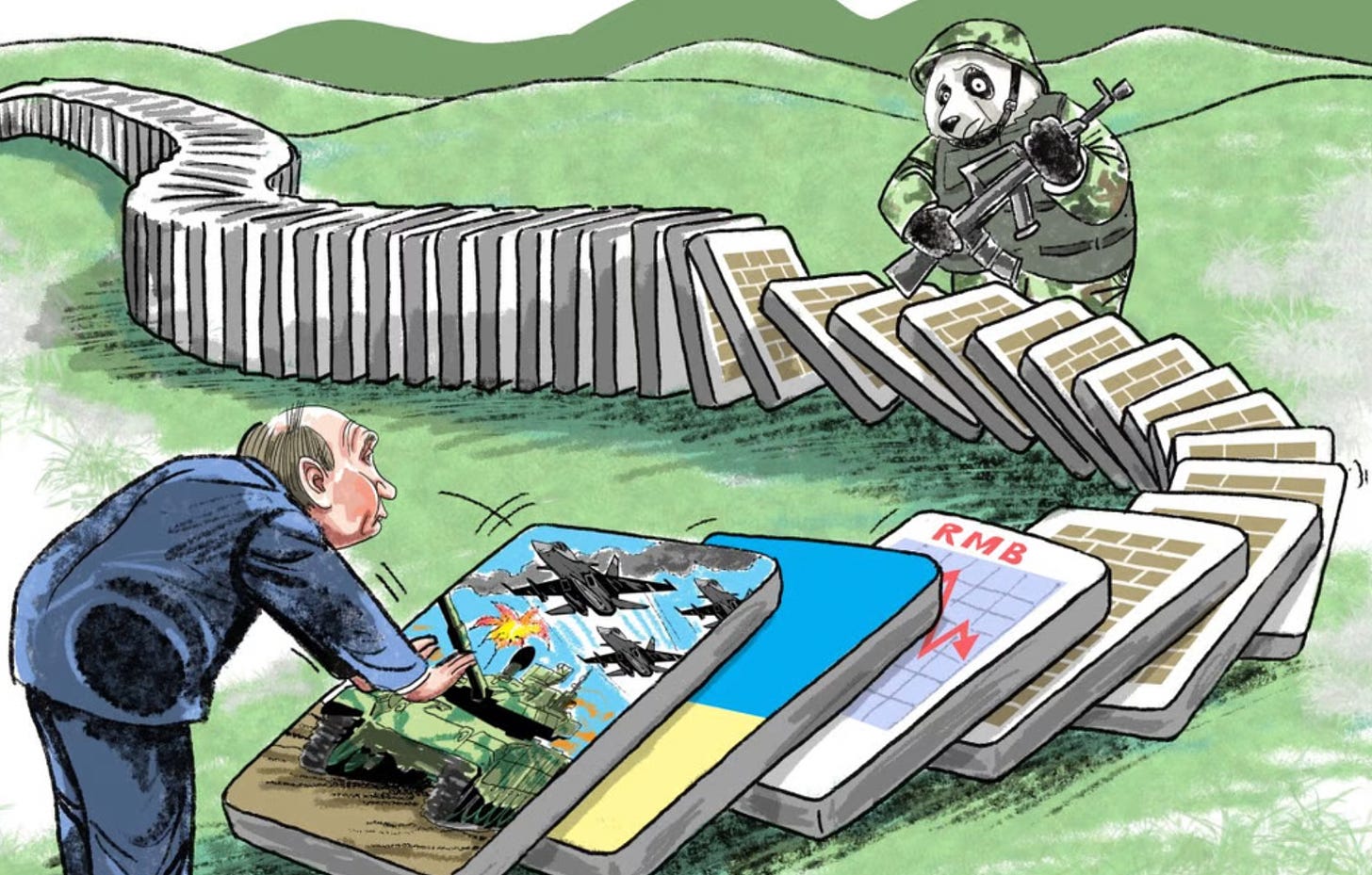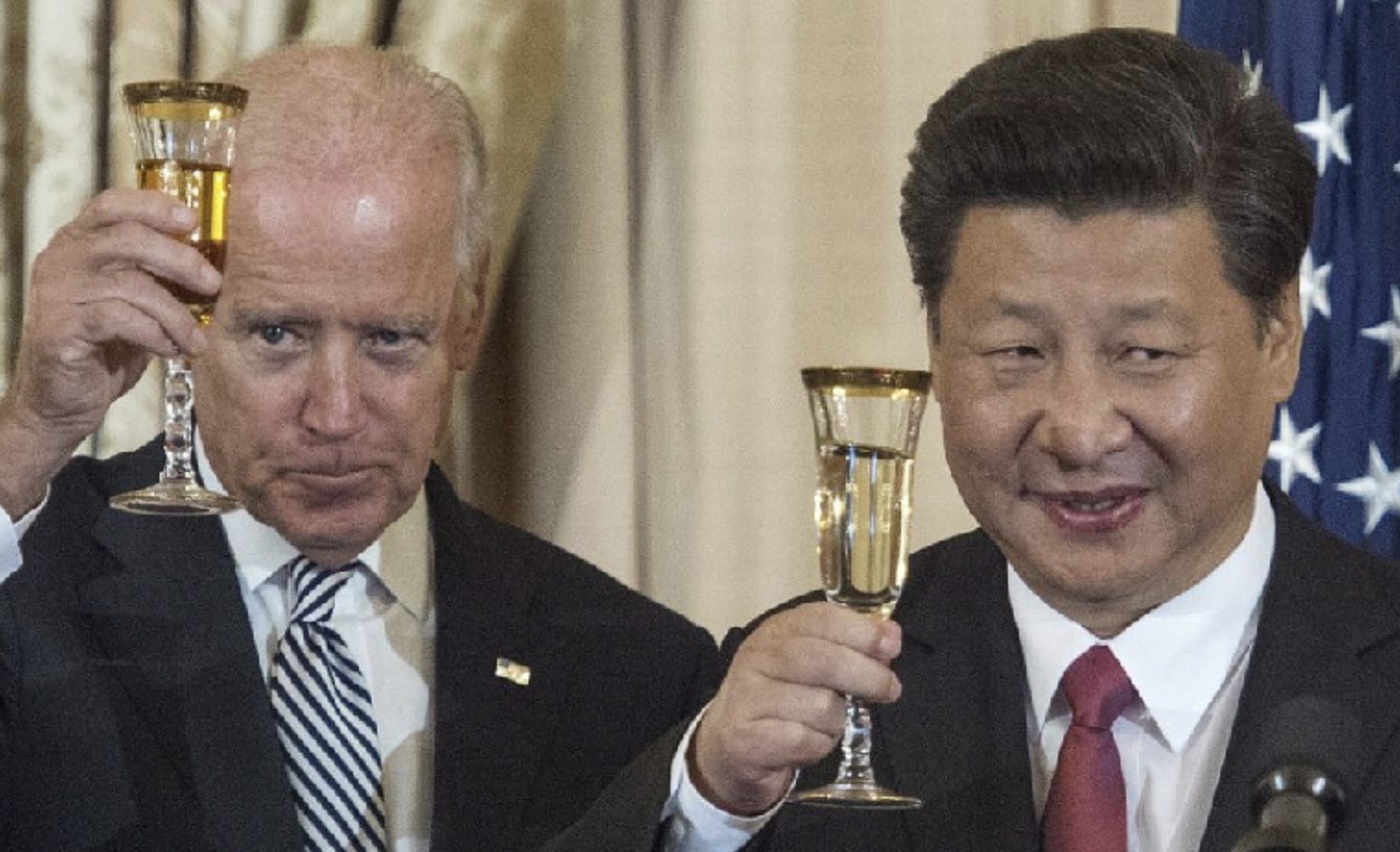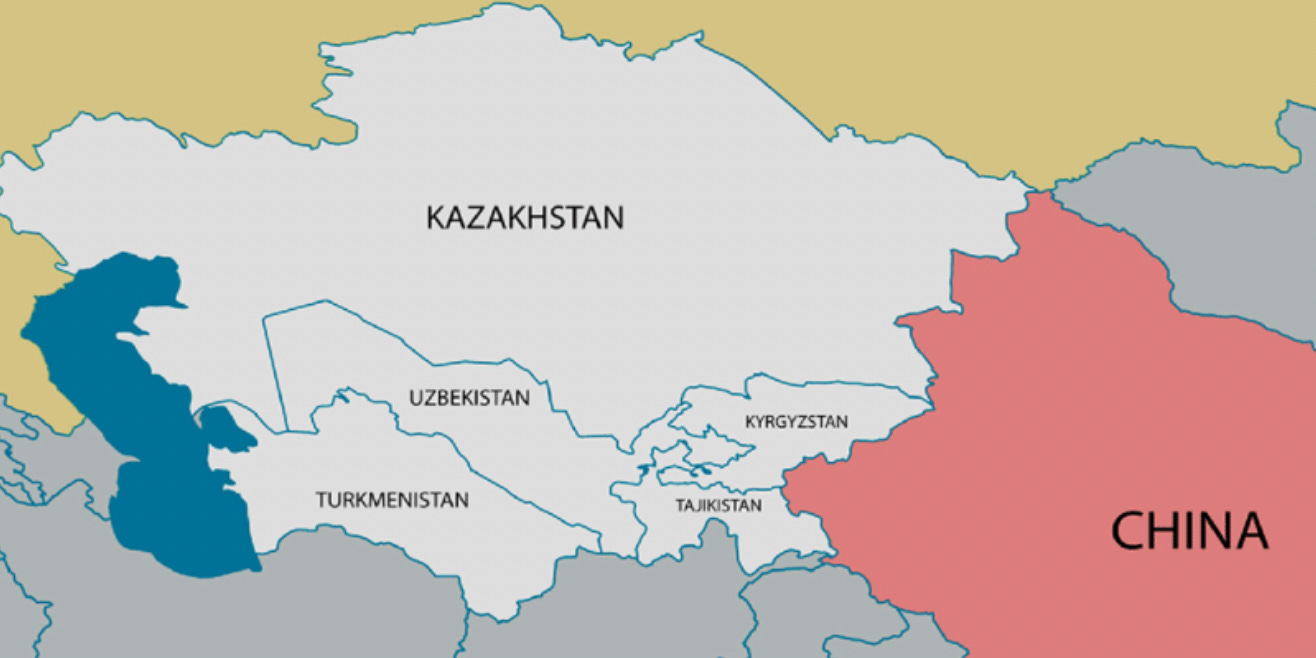Imagine posing for a selfie with your “bestie”, Vlad Putin, uploading it globally, and days later he invades Ukraine where you have billions invested. Then he murders tens of thousands and plunges the world into hyper-inflation, food and energy shortages, and a global economic downturn. That’s exactly what has befallen President Xi Jinping of China this year. Chinese officials maintain that the invasion plans were not disclosed by Putin, but Xi has remained silent publicly about what was said or not said, nor has he criticized his partner’s murder and mayhem. However, he has been distancing himself from Moscow, and China has not provided a single bullet to Russia’s war machine. Even so, guilt by association has hurt China’s reputation and damage control is in order which is why attempts are underway for a bilateral meeting between Xi and President Job Biden at the G20 meeting on November 15. If this happens, it would represent a reset by China, will undermine Putin, and placate China’s customers in America and Europe. But if the bilateral isn’t held, Beijing’s current economic problems will worsen.
The dance surrounding a possible Sino-American summit is worth watching as it unfolds, and the outcome will be quite telling, geopolitically and economically. The G20 is a major gathering of the world’s most powerful leaders where major decisions are made and alliances forged or broken. This year, it is hosted by Indonesia and the White House has made it clear that Biden will not be meeting with Putin and is quietly working to insure that the two won’t cross paths in a corridor or appear in a group photo. However, the White House is ardently working with Chinese officials to set up a bilateral between Biden and Xi. But one day reports say that China is back pedalling and the next day there are indications that the meeting has been green lit. Clearly, both are well-advised to get together in person, symbolically if for no other reason, and the two have already met and spoken several times.
Avid China-watcher former Australian Prime Minister Kevin Rudd believes the two-way meeting is critically important for everyone. Xi can gain mightily – as well as the world -- by engaging with the U.S. to address the Putin nuclear threat problem. “Beijing has begun to diplomatically distance itself from Moscow, but this is not enough. Xi must act in China’s national interest and intervene to defuse the [Putin] nuclear threat. A first practical step forward by both countries [US and China] would be to agree on a joint statement with others at the United Nations on the non-use of all forms of weapons of mass destruction in and around Ukraine.”
That’s a tall order, but Xi needs to break away from Putin’s psychopathology. It’s tricky, given their past association and present energy trading arrangements, but Xi is cautiously making moves. For example, he’s come close, not by openly condemning the Russian invasion, but by publicly and repeatedly stating his belief in the sovereignty of nations and territorial integrity, both of which have been abrogated by Putin. In September, Xi privately reassured Kazakhstan that he would protect it from any Russian incursion in a statement that was leaked. He also raised his concerns, in a private meeting that month with Putin, about Russia’s nuclear threats, even insisting that Putin publicly acknowledge his concerns about the war at press conference following their meeting. More recently, Xi said that the conflict in Ukraine has “sounded an alarm for humanity”.
Obviously, Xi has a moral obligation, as well as an economic motive, to address the possibility that Putin may unleash nuclear weapons against Ukraine. China weighing in on this issue would make an enormous difference, exposing Russia as a rogue nation without the full backing of its avowed partner. It would also, as Rudd states, win back friends and trading partners in America and Europe where China is now disdained. And a meeting of the minds with the U.S. might also lead to agreement with Washington on a joint commitment to fair trading practices that, unless addressed, will continue to spiral out of control.
Xi must mend international fences because his nation’s economic prospects diminish. No sooner was Xi “re-elected” on October 23 than there was an “epic” foreign investor sell-off of Chinese stocks and the country’s Yuan currency collapsed globally to a 15-year low against the U.S. dollar. It was a dramatic rebuke by the world’s investors because Xi, in his acceptance speech, did not signal a shift in damaging domestic policies nor did he replace his cadre of yes men. This year, China’s growth rate is expected to be the lowest in a generation.
It also didn’t help, as The Japan Times noted, that Xi’s speech lacked new initiatives and wasn’t upbeat. “Xi’s somber warning of `dangerous storms’ on the horizon, indicated that he believed international hazards have worsened, especially since the start of the war in Ukraine, according to experts.” Xi also referred to Chinese vulnerability to technological “choke points” and to Western military alliances in Asia. He never referred directly to Russia, Putin, or the United States but restated the desire to control Taiwan by friendly means, if possible. Overall, it was a gloomy talk and the key takeaway was the word “struggle”.
Xi must address China’s self-inflicted problems. His Putin connection is damaging and his draconian Covid lockdowns have lasted off and on for years and forced many western firms to remove Chinese firms from their supply chains. His $1-trillion Belt and Road Initiative has fallen on hard times, dogged by enormous debts and unfinished infrastructure projects due to non-payment by client nation-states that are also in financial straits. Domestically, Xi’s biggest headache is an ailing banking system that has been grievously harmed by a real estate bubble and speculation that continued for years unbridled and now threatens China’s middle class.
Also under-reported in the Western press is the fact that China was one of the biggest foreign investors in Ukraine, building infrastructure, snapping up corporations, and buying huge tracts of farmland. Its war losses there are sizeable. Another negative concerning Russia’s war is that it is destabilizing Eurasia. “The greater danger is that a war-weakened Russia will expose China’s border to military frictions throughout Central Asia, largely kept under wraps by Moscow,” according to a recent analysis in Hong Kong. These nations are populated by Turkic Moslems, who sympathize with the Uyghurs that China persecutes, but China has invested billions in their economies through its Belt and Road Initiative infrastructure projects. Russia’s Imperialism is causing negative ripple effects throughout that region, as well as in Russian-controlled Siberia, and may lead to secessionist movements or revolts that will also impact China.
Anti-China hawks consider China as dangerous a player as is Russia, pointing to its threats to invade Taiwan and the fact that the country now has the world’s biggest navy. But the United States has pre-emptively vetoed that possibility by firmly backing Taiwan and by demonstrating its devastating military firepower in Ukraine. In addition, the war has caused Japan and South Korea to remilitarize and both are considering acquiring nuclear weapons to prevent Chinese aggression in the region. Frankly, China’s navy has been more about business, not conquest, and is about protecting China’s economic lifelines — shipping lanes that deliver its exports globally and deliver imports of energy, food and equipment that keep its economy going.
Besides, conquest has not been part of China’s DNA: If China was Russia it would have invaded its tiniest neighbors in southeast Asia (including Taiwan) years ago. Now America’s strengthening military alliance in the region with India, Japan, and Australia can hold China in check. This is in part why tough talk by Beijing about Taiwan will likely ebb as Xi faces pushback by other naval powers and cannot rely on help from the thugs in The Kremlin any longer.
For these and other reasons, China’s principal focus will be building its economy to provide prosperity for its gigantic population. It wants to sell stuff, not murder civilians and children. China is pragmatic, not dogmatic, and hopefully Xi will demonstrate this trait by holding constructive talks with Biden in November. Both economic superpowers have matters to iron out as well as shared concerns about Putin’s nuclear threats. If they meet to try and prevent nuclear war, and to mend business differences, they will also help eradicate Putin.
Much rests on the G20 summit.







oustanding ....putin is becoming more and more isolated .....ill look forward to your book on the ukraine war ...Robert Ash Q.C
Thanks again Diane for your continued reporting on this issue - the research you do and contacts you reach out to are unsurpassed in anything else I read.